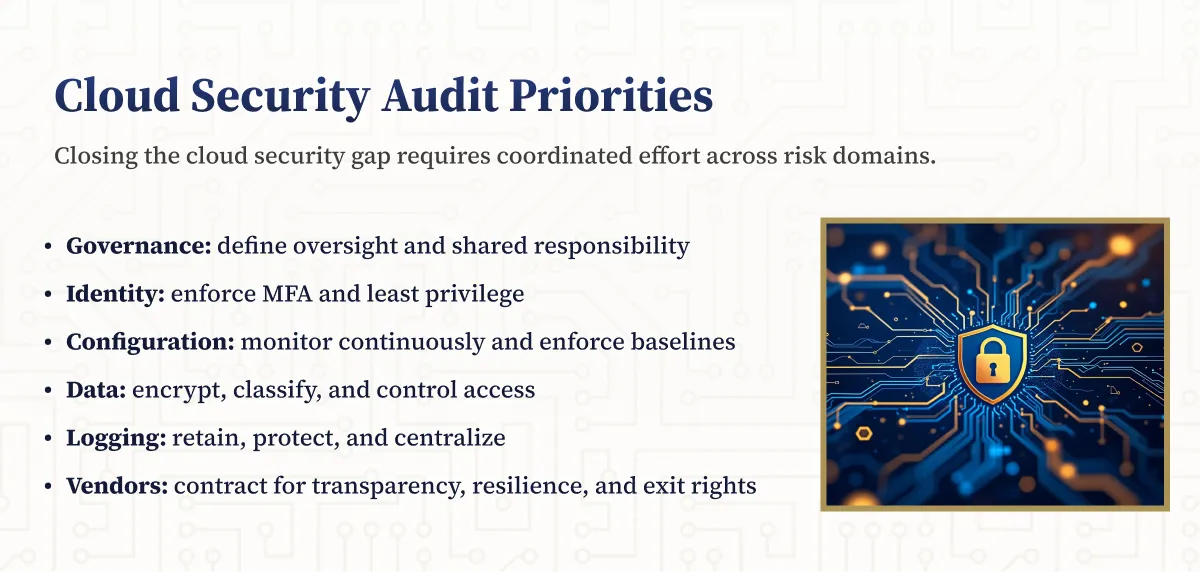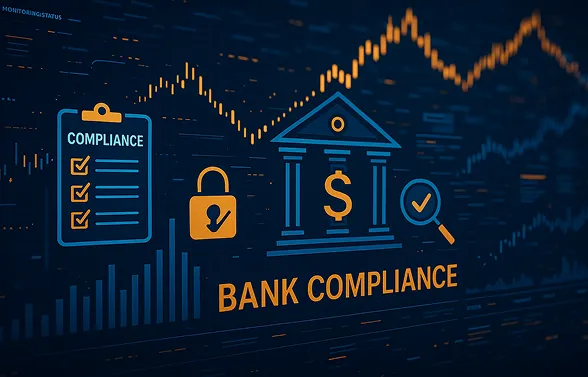In the rapidly evolving landscape of financial services, data has become the cornerstone of operations, decision-making, and customer service. As a professional responsible for data assurance in a financial institution, you're well aware that the integrity, accuracy, and security of this data are not just operational necessities but strategic imperatives. This guide delves into the critical aspects of data assurance in financial services, offering insights, best practices, and forward-looking perspectives to help you navigate this complex field.
Understanding Data Assurance in Financial Services
Data assurance in financial services encompasses a broad range of processes, policies, and technologies designed to ensure the integrity, quality, and security of data throughout its lifecycle. In an industry where a single data error can lead to significant financial losses, regulatory penalties, or reputational damage, the importance of robust data assurance practices cannot be overstated.
.webp)
Consider these industry statistics:
- Gartner reports that poor data quality costs organizations an average of $12.9 million annually.
- According to IBM, the cost of a data breach in the financial sector averaged $6.08 million in 2024, higher than all industries except healthcare.
These figures underscore the financial and regulatory risks associated with inadequate data assurance in financial services. As a data assurance professional, your role is crucial in mitigating these risks and ensuring that your institution's data assets are a source of trust and value.
Key Components of Data Assurance in Financial Services
A comprehensive data assurance framework in financial services should encompass several interconnected components:
.webp)
Data Governance
At the heart of effective data assurance lies robust data governance. This involves establishing clear policies, procedures, and standards for managing data across your organization. Key aspects include:
- Defining data ownership and stewardship roles
- Establishing data quality standards and metrics
- Developing and enforcing data management policies
- Creating a data governance council to oversee data-related initiatives
In financial services, effective data governance is not just about internal control; it's increasingly a regulatory requirement. For instance, BCBS 239 mandates that banks have strong governance arrangements over their risk data aggregation and risk reporting practices.
Data Quality Management
Data quality management focuses on maintaining the accuracy, completeness, and consistency of data. In financial services, where data drives everything from risk assessments to customer interactions, quality is paramount. Key practices include:
- Implementing data profiling and cleansing processes
- Establishing data validation rules and checks
- Conducting regular data quality assessments
- Implementing master data management (MDM) solutions
.webp)
Remember, in financial services, data quality isn't just about accuracy. It's about having data that's fit for purpose across various use cases, from regulatory reporting to customer analytics.
Data Security and Privacy
With the increasing frequency and sophistication of cyber threats, coupled with stringent data protection regulations, data security and privacy have become critical components of data assurance. Key considerations include:
- Implementing robust access controls and authentication mechanisms
- Encrypting sensitive data both at rest and in transit
- Conducting regular security audits and vulnerability assessments
- Ensuring compliance with data protection regulations (e.g., GDPR, CCPA)
In financial services, the stakes of a data breach are particularly high. Beyond the immediate financial impact, the loss of customer trust can have long-lasting consequences.
Data Lineage and Traceability
Understanding the origin, movement, and transformation of data throughout its lifecycle is crucial in financial services. Data lineage and traceability capabilities help you:
- Identify the source of data quality issues
- Ensure regulatory compliance and auditability
- Facilitate impact analysis for system changes
- Support data-driven decision making
For example, when preparing regulatory reports like those required by BCBS 239 or CCAR, being able to trace data back to its source is essential for ensuring accuracy and building regulatory confidence.
Metadata Management
Effective metadata management involves creating and maintaining a comprehensive repository of information about your data assets. This includes:
- Documenting data definitions and business glossaries
- Mapping data flows and system integrations
- Managing data catalogs and dictionaries
- Supporting data discovery and understanding
In financial services, where complex data ecosystems are the norm, good metadata management is key to making sense of your data landscape and deriving value from your data assets.
Regulatory Requirements for Data Assurance in Financial Services
The financial services industry is subject to a complex web of regulations that directly or indirectly impact data assurance practices. As a data assurance professional, you need to be aware of these regulations and their implications:
BCBS 239
This Basel Committee regulation focuses on risk data aggregation and risk reporting. It requires banks to have strong governance arrangements, robust data architectures, and accurate and reliable risk data.
GDPR and CCPA
These data protection regulations have set new standards for how financial institutions handle customer data. They require robust data management practices, including the ability to easily locate and delete customer data upon request.
Sarbanes-Oxley Act (SOX)
While primarily focused on financial reporting, SOX has significant implications for data integrity and IT controls in financial institutions.
.webp)
Dodd-Frank Act
This wide-ranging regulation includes provisions related to data reporting and transparency, particularly in areas like swap data reporting.
Compliance with these regulations often requires extensive reporting and documentation. As a data assurance professional, you play a crucial role in ensuring that your institution can meet these regulatory requirements efficiently and effectively.
%201%20(1).svg)
%201.svg)
THE GOLD STANDARD INCybersecurity and Regulatory Compliance
Best Practices for Implementing Data Assurance in Financial Services
Implementing effective data assurance practices in a financial institution requires a strategic approach. Here are some best practices to consider:
Establish a Strong Data Governance Framework
- Create a data governance council with representatives from across the business
- Develop clear data policies and standards
- Define and communicate data ownership and stewardship responsibilities
- Implement a data governance maturity model to guide continuous improvement
Leverage Technology for Data Quality Management
- Implement data profiling tools to identify quality issues
- Use data cleansing and enrichment software to improve data accuracy
- Deploy automated data validation and reconciliation tools
- Consider implementing master data management (MDM) solutions
Conduct Regular Data Audits and Assessments
- Perform comprehensive data quality assessments
- Conduct data security and privacy audits
- Evaluate the effectiveness of data governance processes
- Assess compliance with regulatory requirements
Foster a Data-Driven Culture
- Provide data management training for employees at all levels
- Develop data quality awareness programs
- Encourage cross-functional collaboration on data initiatives
- Recognize and reward data quality improvements
Integrate Data Assurance with Risk Management
- Incorporate data quality metrics into risk assessments
- Align data governance initiatives with enterprise risk management
- Develop data-specific risk mitigation strategies
- Ensure data assurance is considered in business continuity planning
Emerging Technologies and Their Impact on Data Assurance
As a data assurance professional in financial services, it's crucial to stay abreast of emerging technologies that can enhance your data assurance capabilities:
%2520(1).webp)
Artificial Intelligence and Machine Learning
AI and ML are revolutionizing data quality management by:
- Automating data cleansing and enrichment processes
- Detecting anomalies and patterns in large datasets
- Predicting potential data quality issues before they occur
- Enhancing metadata management through automated tagging and classification
Blockchain
While still in early stages of adoption in financial services, blockchain offers promising applications in data assurance:
- Enhancing data immutability and transparency
- Improving data lineage and traceability
- Streamlining audit processes through smart contracts
- Facilitating secure data sharing among financial institutions
Cloud Computing
The adoption of cloud computing in financial services presents both opportunities and challenges for data assurance:
- Offering scalable storage and processing capabilities for big data
- Enhancing data accessibility and collaboration
- Raising potential security and compliance concerns, particularly around data residency
- Requiring robust cloud data governance strategies
Big Data Analytics
Big data analytics tools are enabling financial institutions to:
- Gain deeper insights into data quality trends and patterns
- Improve risk assessment and fraud detection capabilities
- Enhance customer segmentation and personalization
- Optimize data-driven decision-making processes
Robotic Process Automation (RPA)
RPA is making waves in data assurance by:
- Automating routine data quality checks and reconciliations
- Reducing human errors in data entry and processing
- Freeing up resources for more complex data analysis tasks
- Enhancing the speed and consistency of compliance reporting
According to IDC, by 2025, 75% of large enterprises will use AI-enabled data management solutions to improve data quality and decision-making processes.
The Future of Data Assurance in Financial Services
As we look to the future, several trends are likely to shape the landscape of data assurance in financial services:
- Increased regulatory focus on data quality and management
- Growing importance of real-time data processing and analysis
- Rising emphasis on data ethics and responsible AI
- Continued evolution of cybersecurity threats and defenses
- Increasing adoption of open banking and API-driven ecosystems
As a data assurance professional, staying ahead of these trends will be crucial to ensuring that your institution's data assets remain a source of competitive advantage rather than a liability.
Elevate Your IT Data Integrity with NETBankAudit
As we've explored throughout this article, data assurance is a critical component of modern financial services operations. The complexity of regulatory requirements, the rapid pace of technological change, and the ever-evolving threat landscape make it challenging for financial institutions to maintain robust data assurance practices on their own. This is where NETBankAudit comes in, offering unparalleled expertise and services tailored specifically to the needs of financial institutions.
IT Audit and Risk Management Services
Founded in 2000 by a team of IT bank executives and regulatory specialists, NETBankAudit has been at the forefront of helping financial institutions navigate the complexities of IT risk management and compliance for over two decades. Recognizing the transformative impact of technology on the financial services sector, particularly in the movement of money and data through electronic channels, NETBankAudit positioned itself as a crucial partner for institutions seeking to enhance their IT oversight and control with services including:
- IT General Controls Auditing
- Network Security Assessments
- Social Engineering Testing
- Transactional Audits (Digital Banking, Wire Transfer, RDC, ACH)
- Regulatory Compliance Support
With over 750 financial institutions served across 37 states, NETBankAudit has a proven track record of delivering value. Our methodologies adhere to industry-leading standards including FFIEC, SOX, IIA, AICPA, PCAOB, ISC2, ISACA, EC Council, NSA, and SANS.
Don't let data quality issues or compliance gaps hold your institution back. Contact NETBankAudit today for a free consultation and take the first step towards transforming your data assurance practices into a strategic asset.
.avif)

.svg)

.webp)

.webp)











.webp)



.webp)

%201.webp)
.webp)
%20(3).webp)


.webp)


%20Works.webp)


.webp)




.webp)
%20(1).webp)

.webp)










.webp)
.webp)

.webp)
.webp)
.webp)
.webp)
.webp)
.webp)
%201.svg)